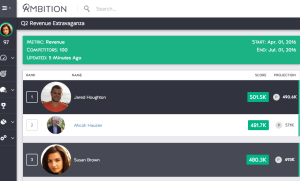
With more businesses trying to connect to customers through their mobile phones, via apps and the Web, company information must not only be up-to-date, it needs to be local.
That is where Howard Lerman, CEO and co-founder of New York-based Yext, sees his company continuing to grow—even as the race to capture localized data intensifies with big players such as Google dominating the map scene.
Yext calls itself a geo-marketing listing service that provides a central place for companies to update their location-specific information such as addresses, business hours, and dining menus (for restaurants). Clients of Yext include Citibank, FedEx, Ann Taylor’s division Loft, and Sears.
Founded in 2006, Yext has since raised some $ 116 million from investors. That includes a $ 50 million Series F round last June led by Deven Parekh, managing director of Insight Venture Partners, with participation from Marker, Institutional Venture Partners, and Sutter Hill Ventures. Yext is also eyeing a possible IPO for the future.
In addition to Yext, Lerman developed Confide, an app for businesses to send secure, self-destructing messages, and Ahoy, which tells friends where the users are with one button push.
Lerman spoke with me about what the future may hold for location-based information and what else Yext has on tap this year.
Xconomy: Why is location data getting more attention, and where does Yext fit in?
Howard Lerman: Whenever you book an Uber, whenever you look at a map, whenever you look up directions, location data is the underpinnings behind that.
Check in to a place on Foursquare or Facebook, or book a reservation on Yelp—business location data is behind that.
We manage digital presence for 400,000 businesses around the world. It’s pretty complicated because you have all these different places that people use when they interact with location services. Yelp, Facebook, Google Maps, Apple Maps, Foursquare, Bing, Yahoo. Then you get a bunch of vertical stuff, even Uber when you book your car and tell it where you want to go. We’re all using location data.
Our software makes it possible to sync that data across multiple platforms at the same time. If you’re Citibank and you want to change the phone number of your location, even tweak where it is on the map with the latitude and longitude, you can put that information into Yext and we sync it across all those different places.
We’ve got proprietary integrations with over 100 publishers around the globe. That enables a business to get information out there, but fundamentally enable consumers to always have the best location data.
There are 50 million business locations in the world. We power 1 million updates per month across those 400,000 locations, but we’re still less than 1 percent done.
XC: How much data does Yext handle?
HL: 2014 was the first year that more than half of search was mobile. And on your phone, the majority of searches are locally focused. You look up where to go, where a restaurant is.
The vast majority of commerce occurs offline, and the connection there is with mobile. Marketers will be able to use their media budgets, not just to drive online sales but increasingly with phones in people’s pockets that will be used to drive offline sales. That’s where we see marketing shifting over the next decade.
There are 50 million business locations in the world that are changing constantly. The average business is updating some core piece of data about themselves more than once a month. They’re changing their hours, phone numbers, and product inventories constantly. We’ve got a long road ahead to keep all this in sync.
XC: What else can be done with this data? What new ways can these different bits of information be used together?
HL: The trend has been for mashups. Your phone uses data from Apple Maps, but that map is showing up with Uber. And then maybe it has Foursquare location … Next Page »
(297)








